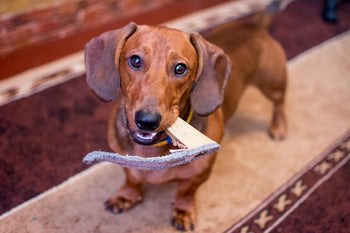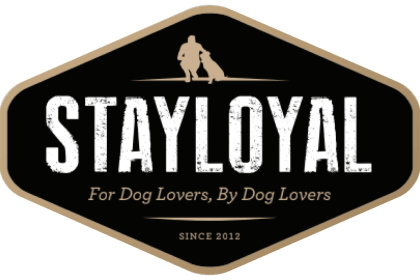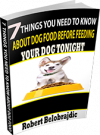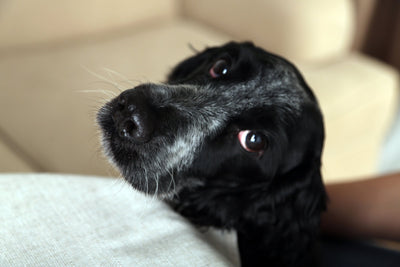How to Stop Your Dog from Chewing Everything!

When it comes to chewing, there are two scenarios:
1. The puppy or adult dog (usually a rescue) who hasn’t been taught that for some strange reason we humans don’t want them enjoying all the tasty things around our house
2. The adult dog that’s always been good but has suddenly started to destroy things.
We will address both here. First though, you have to understand that not chewing on things is a human rule. Your dog chews on things for many reasons, all of which make sense to him. He doesn’t understand the value of an iPhone or why the couch is ruined if the stuffing is pulled from it. Here are some of the main reasons dogs chew:
· It cleans their teeth
· It relieves the pain of teething in puppies and helps loosen baby teeth
· It exercises their jaw
· It’s a boredom buster
· It’s an outlet for the “hunting instinct” (these are the dogs that shake, tear, and shred things)
All of these things are necessary for your dog to do. So, what you need to do is teach your dog that he can do all these things, but only with things you give him.
The Puppy/Dog Who Doesn’t Know any Better
If you are bringing home a puppy or a rescue dog that has had no formal training, you need to assume he chews. This means PROOFING YOUR HOME so nothing that he may chew is accessible to him. Before he knows the rules, it is your fault if you leave your Italian leather shoes in the middle of the room and then leave your dog unsupervised. You can’t punish him – he doesn’t know the rules. How unfair would you feel if you went to a foreign country and got arrested for talking on the phone on the sidewalk? You didn’t know it was illegal, no one told you the laws. It’s the same with your dog. While you are training him, you need to keep temptation out of reach. It’s also a safety thing. Many times, the items they are chewing on are not safe and you can end up with a large vet bill and even lose your new best friend.
Next, Teach the Rules
Then, it’s time to start teaching the rules. It’s actually a fairly easy process. Make sure your puppy and dog has plenty of dog toys and chews around so has something that’s okay to chew. Whenever you see him make the right choice by chewing on something of his, praise him.
If you catch him chewing something that’s not his – TRADE IT
Present him with something that is appropriate to chew. As he let’s go of whatever he is chewing you can say “Drop it,” thus teaching a behavior at the same time.
If you don’t catch them. Do nothing. You cannot punish a dog later. There are many studies that prove that this is not an effective way to train a dog because they do not have a memory like ours. Even if you catch them at the chewing, physical punishment will just make them hide next time they are chewing something, and then you wouldn’t be able to do a trade.
Think of it in terms of dog language.
In the dog world, when another dog wants something another dog has, they come at them. Teeth bared, growling, a dog that guards may even bite – thus winning the item. If you come at your dog and physically punish him, all he thinks is “wow, he really wanted that for himself, next time I’ll hide so he can’t take it from me.” Not chewing on things is a human behavior that has to be taught. It’s not a concept your dog naturally understands.
This is where crate training is handy, because you can crate your dog when you are not around to watch him so he can’t make a wrong choice while you are gone.
The Dog That Suddenly Starts Chewing
This is a different scenario altogether. If your dog has always been good, learned the rules as a puppy and has since never chewed, but all of a sudden he is, you need to assess some things.
Did something in the environment change that is causing your normally well-behaved dog to misbehave? Stress can manifest in destructive behavior (think of dogs with separation anxiety). Did you move? Is their construction going on that’s making loud noises and scaring your dog? Did someone move in/out of the house?
Medical issues could also be causing it – for example a tooth or gum could be bothering him. Sometimes something completely unrelated could be causing the behavior, so a vet check is a good idea to rule out a medical cause.
If your dog is not getting the exercise he used to because of a change in your life, this could be a cause as well. Your “good dog” might have been good when he was getting a 5-mile run every day, but if all of a sudden he is getting nothing, that energy is going to go somewhere…
With these dogs, you have to figure out the cause before you can stop the behavior. No amount of training will fix the problem if it’s related to stress, a medical issue, or pent up energy (unless you’re training him so much you are tiring your dog out!).
Just remember that your dog is a dog and mistakes will happen, especially when they are training. The best advice is to never leave something that is priceless in your mind or dangerous to your dog where they can get it – just in case. Consistency is key too, so make sure everyone in your household knows the rules so they can help your dog be successful.








